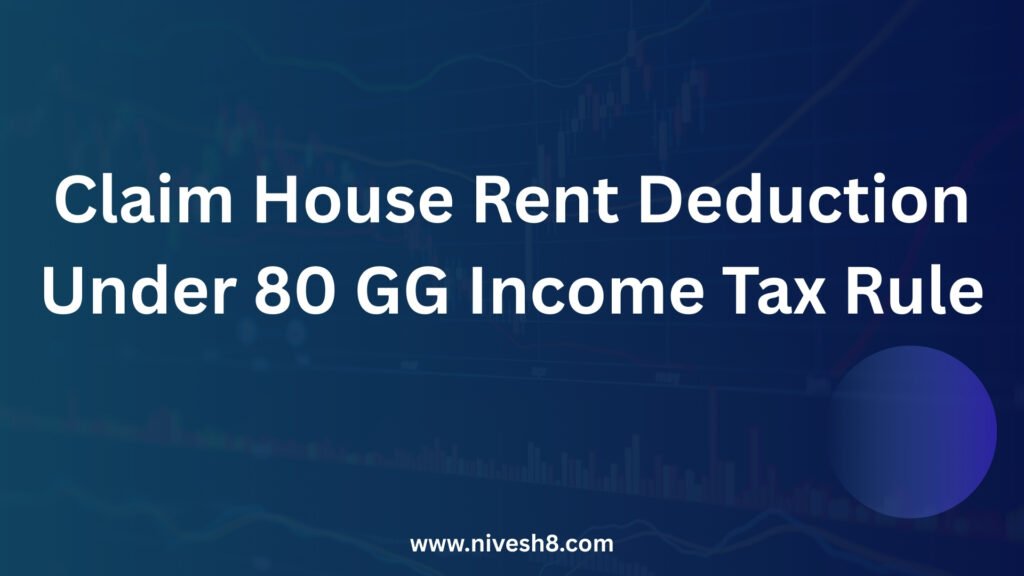Not everyone gets House Rent Allowance (HRA) from their employer. Should you live in a rented house and not get HRA, not to panic; you can still save tax with 80 GG income tax benefits. Let’s learn about it and who can make claims.
80 GG Income Tax Deductiveness:
Section 80 GG income tax lets you deduct rent paid provided:
- Your company isn’t giving you HRA.
- You inhabit a rented house.
- You pay the rent from your own pocket.
For whom can one claim this deduction?
Claiming 80 GG income tax benefits requires:
- You are salaried or self-employed.
- You do not obtain HRAs.
- None of you, your partner, or your minor child own residential property at the location where you operate or conduct business.
Under 80 GG Income Tax, How Much Can You Claim?
Of the following, the deduction you could be entitled for is the lowest:
- ₹5,000 a month (or ₹60,000 a year)
- 25% of your total income (excluding long-term capital gains and other exempt income)
- Actual rent paid less ten percent of total income.
Allow me to quickly provide an illustration:
- Annual income: ₹4,80,000
- Paid annual rent: ₹96,000
- Ten percent of income: ₹48,000
- Excess rent: ₹96,000 – ₹48,000 = ₹48,000
- 25% of income is ₹1,20,000.
- Maximum permitted is ₹48,000 (lower of ₹60,000, ₹1,20,000).
You may thus claim a deduction of ₹48,000.
Claiming the Deduction: How?
- File your ITR using the previous tax system; 80 GG is not available under the current one.
- Send Form 10BA declaring you are not receiving HRA.
- Save proof from rental agreements and rent receipts.
Important Things to Remember
- You are probably renting a house.
- This advantage comes only if you are not receiving HRA.
- Send Form 10BA before claiming the deduction.
- Should you be moving from HRA to non-HRA, you can still claim 80 GG for the period in which HRA was not received.
Last Views
For those who pay rent yet do not get HRA, Section 80 GG income tax is a useful clause. Use this deduction to lower your taxable income if you live in a rented house and follow the policies.



